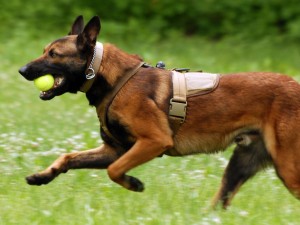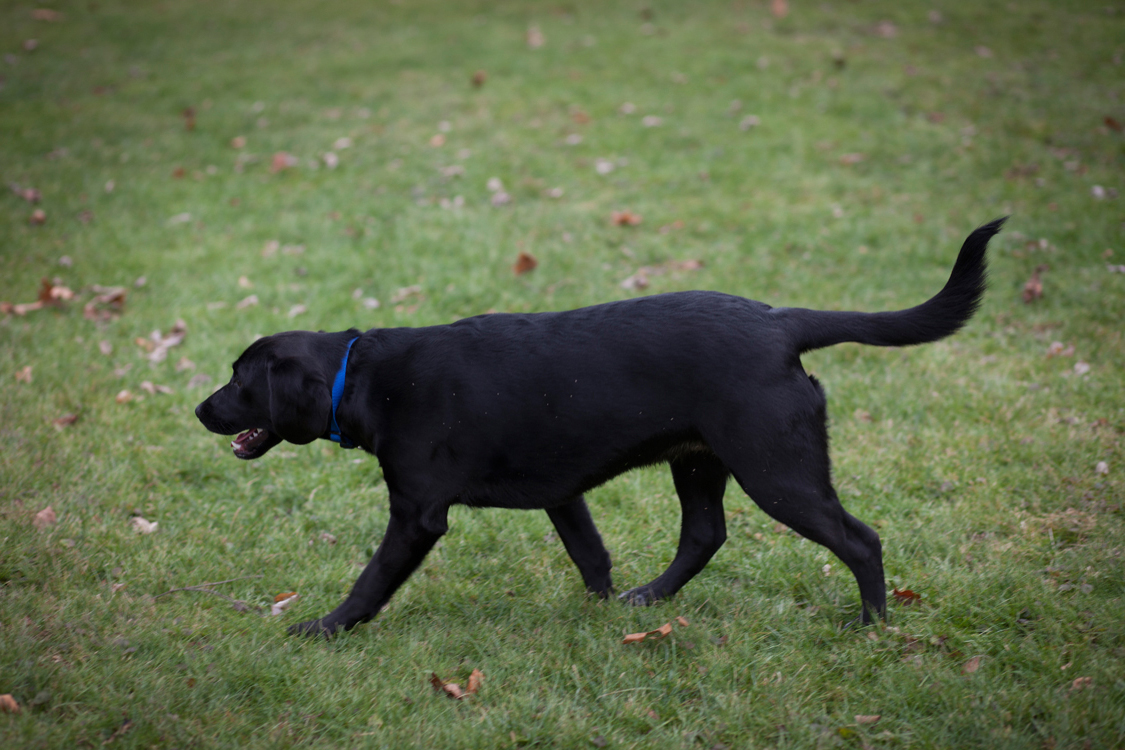 San Antonio, TX – A program which breeds Belgian Malinois to become military working dogs relies on volunteer foster families to socialize and expose them to a variety of environments. The families raise the dogs for about five months before returning them to go through an intensive training program at the Defense Department’s Military Working Dog Breeding Program at Lackland Air Force Base.
San Antonio, TX – A program which breeds Belgian Malinois to become military working dogs relies on volunteer foster families to socialize and expose them to a variety of environments. The families raise the dogs for about five months before returning them to go through an intensive training program at the Defense Department’s Military Working Dog Breeding Program at Lackland Air Force Base.
The idea behind the program is to prepare these future military working dogs for a lifetime of service, exposing them to different situations; some families have children, some have other pets, and some are elderly, giving the dogs a chance to experience ‘life’.
Bernadine Green, the program’s deputy director, explains that Belgian Malinois are bred and trained to serve alongside other military working dogs, a select group used by DOD and other government agencies for patrol, drug and explosive detection, and in specialized missions both stateside and overseas. She goes on to say that the program solely breeds Belgian Malinois because they tend to make outstanding working dogs, able to carry out a mission equally well whether on an installation or in a combat zone.
The families that foster the dogs are a mix of active duty, veterans, and community members, all volunteering because of their desire to serve. When the puppies are about 8 weeks old and showing signs of promise as future service dogs, they are placed with one of the families, staying with them for about five months. This is enough time to introduce a sense of socialization and encourage the temperament that makes them such outstanding working dogs. “Families love to do it,” Bernadine Green said. “It’s their way of giving back to the community and the military, and also for the sheer pleasure of caring for a puppy.”
The foster phase of the program is the most important part of the rearing to become service dogs because the dogs learn things they would otherwise miss out on if kept in a kennel; real life situations require an overall sense of socialization and basic obedience, both things that are focused on during this phase with the foster families. The families are even offered help in basic puppy rearing and instructed on basic obedience.
Once the five months with a foster family is up, the dogs go back to the breeding program where they continue their training. Although the foster phase is the most integral, it is also the hardest…for the families! The families become attached to the puppies, making it difficult to hand them back over. “We have a lady who fostered 13 puppies…” Green said. Each time she returns a puppy, “she cries a blue streak.”
This program was put into place in order to breed the best in military service dogs and having a town of families who volunteer to participate is truly heartwarming.





